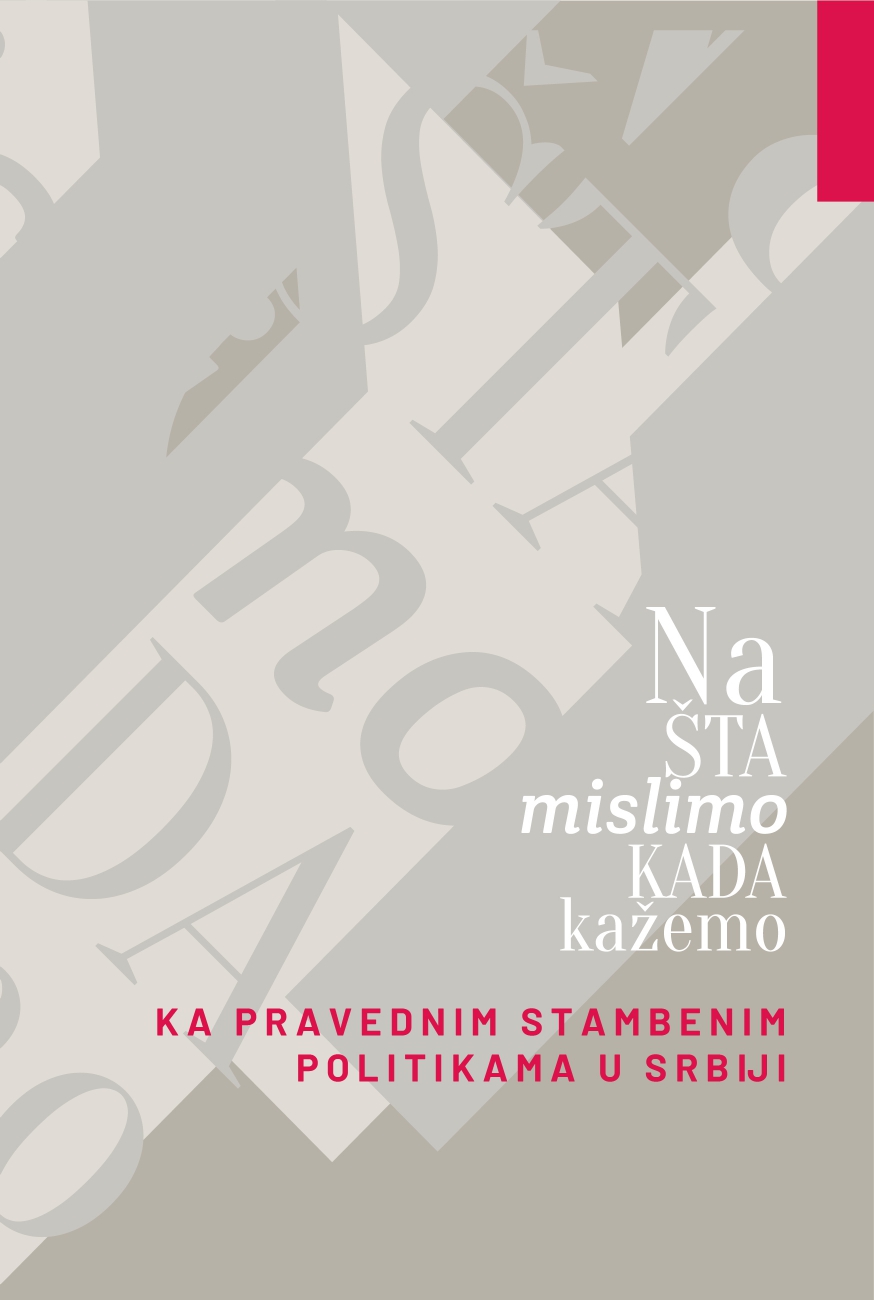
Na šta mislimo kada kažemo… Ka pravednim stambenim politikama
European integrations: Chapter 23 SDGs: SDG 01, SDG 10 Author(s): Bojan Vranić , Ivan Stanojević, Mihailo Gajić Thematic Area: Philanthropy, Solidarity, and Care Published: 2022 ISBN: 978-86-80484-94-5 Pages: 14 Language: Serbian Publisher: Institute for Philosophy and Social Theory, University of Belgrade Tags: book | More DetailsThis research critically examines the housing crisis in Serbia, particularly in Belgrade, emphasizing the profound inequality emerging from the current real estate market dynamics. The study traces the roots of the housing problem to the rapid privatization and liberalization processes of the 1990s, which intensified the privatization of housing and incentivized speculative investments in real estate. This transition led to an escalation in housing prices, transforming homeownership into an increasingly unattainable goal for a significant portion of the population. The rise in housing costs—from a modest portion of household income to over 30% by 2017—illustrates how market liberalization has exacerbated housing inequality.
The research identifies the detrimental effects of speculative investments, such as the emergence of “empty apartments,” where properties are left unoccupied as investment assets rather than used for residential purposes. It highlights how this practice has pushed many citizens into less desirable, peripheral areas of the city, further marginalizing vulnerable groups.
The policy relevance of the research is captured in its proposals for reform. The study advocates for progressive tax policies that target speculative investment and prioritize accessibility for actual residents. Specifically, it calls for increased taxes on the acquisition and possession of properties that are not used for residence, while providing tax incentives for those who do use them as homes. This would counter the influx of investment capital into the housing market, shifting the focus from profit-driven real estate speculation to more sustainable and equitable housing solutions. Such measures aim to increase housing availability, reduce inequality, and promote greater social justice by ensuring that housing remains a basic right for the many, not a commodity for the few.
By rethinking the market’s role in housing, this research contributes to the broader conversation on how to create a more inclusive, democratic urban environment, particularly in transitional economies. Its findings emphasize that effective housing policies, aligned with social justice principles, are essential for addressing the widening disparities in cities like Belgrade and could serve as a model for other post-socialist contexts grappling with similar issues.
Back
